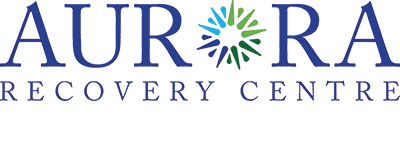At Aurora Recovery Centre, we know an individual’s mental, emotional and physical health all play a key role in their recovery journey. Because exercise gives us the unique opportunity to improve all at the same time, a personalized fitness program is an integral component of our evidence-based approach to recovery.
Getting physically active may sound overwhelming as you or your loved one begins their sobriety journey, but exercising is one of the ways people recovering from addiction can manage their mental health and prevent relapse, according to Canada’s Centre for Addiction and Mental Health. [Addiction 101: Supporting recovery (camhx.ca)]
Physical activity gives us energy, decreases stress, makes us stronger and helps us fight chronic diseases like cancer, obesity, hypertension and Type 2 diabetes, the Government of Canada tell us. [www.canada.ca/en/public-health/services/being-active/physical-activity-your-health.html]
Even a little exercise can go a long way. A Harvard Medical School study (www.health.harvard.edu/blog/can-exercise-help-conquer-addiction-2018122615641) found exercise a few times a week can distract people from cravings for substances like opiods, cannabis, amphetamines and cocaine.
Exercise can add structure to your day, particularly if you commit to exercising with a partner, sign up for a regular fitness class or develop a workout regimen to achieve a fitness goal. It fills spare time that might otherwise be spent thinking about, acquiring or using a substance. This can be especially important in the early stages of recovery. Exercise can also increase self-confidence. Accomplishing a fitness goal underscores your ability to achieve hard things, a valuable message at any stage of recovery.
In addition to physical health benefits like maintaining a healthy weight and strengthening your bones and muscles, exercise boosts your mental health. Many people struggling with substance abuse problems are also trying to cope with a mental illness like depression and anxiety – a condition known as ‘concurrent disorders’ [aurorarecoverycentre.com/concurrent-disorders/] – underscoring the value of forming good mental health habits.
Exercise bumps up the production of your brain’s feel-good neurotransmitters, called endorphins, which in turn boost the release of dopamine in your body, creating positive feelings of euphoria and optimism. Dopamine can also help replace bad habits with new, healthy ones by strengthening good habits. When you’re not doing those feel-good behaviours, dopamine creates the craving to do them again.
Exercise can create new nerve connections in the brain, which can help it heal from impacts of substance use. Research has found that much of addiction’s power lies in its ability to hijack and even destroy key brain regions meant to help us survive. The biological basis of addiction helps to explain why people need much more than good intentions or willpower to break their addictions, the National Institutes of Health reports. [Biology of Addiction | NIH News in Health; newsinhealth.nih.gov/2015/10/biology-addiction]
Mental health benefits of exercise include sharper thinking, learning and judgment skills — all of which can help boost the body’s ability to resist the urge to abuse substances. Regular exercise can improve your mood, help you relax and lower symptoms of mild depression and anxiety.
Exercise can also improve your sleep, which is essential for physical and mental well-being but is often disrupted by stress, depression and anxiety. All those exercise benefits can ease your stress levels while giving you a sense of command over your body and your life, the Mayo Clinic adds. Because withdrawing from substances can heighten stress, taking steps to reduce and manage stress is essential for recovery.
In addition to developing a personalized fitness program for you, Aurora Recovery Centre offers opportunities to exercise — including weight training with our kinesiologist/personal trainer — and to enjoy the power of play, creativity and nature through games and activities like basketball, ping pong, yoga, swimming in our indoor pool and nature walks on our beautiful 25 acres of private land.
If you’re struggling with substance use disorder, contact us today knowing our holistic approach will help you along each step of your journey to recovery.

